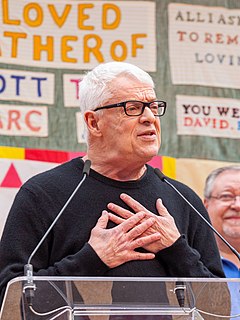A Quote by J. M. Roberts
The Romans had been able to post their laws on boards in public places, confidant that enough literate people existed to read them; far into the Middle Ages, even kings remained illiterate.
Related Quotes
Programming is how we talk to the machines that are increasingly woven into our lives. If you aren't a programmer, you're like one of the unlettered people of the Middle Ages who were told what to think by the literate priesthood. We had a Renaissance when more people could read and write; we'll have another one when everyone programs.
Not only the financial power, but also the legal power, has remained seated in Britain. The Washington Post commented on June 18, 1983 that after the American Revolution, all the old laws remained in effect in the new United States: Some of these laws of "English common law" dated back to 1278, long before America was discovered.
Many people say that we have sufficient laws in our country, just that they are not implemented properly. I completely disagree with them. I have studied many of the laws very carefully. We are still being governed by the same colonial laws which existed in British times. They have not been changed. Many of these laws need to be changed.
The great ideals of the past failed not by being outlived (which must mean over-lived), but by not being lived enough. Mankind has not passed through the Middle Ages. Rather mankind has retreated from the Middle Ages in reaction and rout. The Christian ideal has not been tried and found wanting. It has been found difficult and left untried.
We're living in a Dark Age of macroeconomics. Remember, what defined the Dark Ages wasn’t the fact that they were primitive — the Bronze Age was primitive, too. What made the Dark Ages dark was the fact that so much knowledge had been lost, that so much known to the Greeks and Romans had been forgotten by the barbarian kingdoms that followed.
One of the most persistent fallacies about the Christian Church is that it kept learning alive during the Dark and Middle Ages. What the Church did was to keep learning alive in the monasteries, while preventing the spread of knowledge outside them... Even as late as the beginning of the nineteenth century, however, nine-tenths of Christian Europe was illiterate.

































